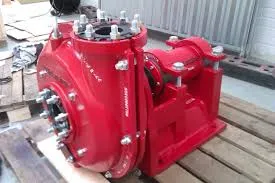TEL:
+86 13120555503
English
- Afrikaans
- Albanian
- Amharic
- Arabic
- Armenian
- Azerbaijani
- Basque
- Belarusian
- Bengali
- Bosnian
- Bulgarian
- Catalan
- Cebuano
- Corsican
- Croatian
- Czech
- Danish
- Dutch
- English
- Esperanto
- Estonian
- Finnish
- French
- Frisian
- Galician
- Georgian
- German
- Greek
- Gujarati
- Haitian Creole
- hausa
- hawaiian
- Hebrew
- Hindi
- Miao
- Hungarian
- Icelandic
- igbo
- Indonesian
- irish
- Italian
- Japanese
- Javanese
- Kannada
- kazakh
- Khmer
- Rwandese
- Korean
- Kurdish
- Kyrgyz
- Lao
- Latin
- Latvian
- Lithuanian
- Luxembourgish
- Macedonian
- Malgashi
- Malay
- Malayalam
- Maltese
- Maori
- Marathi
- Mongolian
- Myanmar
- Nepali
- Norwegian
- Norwegian
- Occitan
- Pashto
- Persian
- Polish
- Portuguese
- Punjabi
- Romanian
- Russian
- Samoan
- Scottish Gaelic
- Serbian
- Sesotho
- Shona
- Sindhi
- Sinhala
- Slovak
- Slovenian
- Somali
- Spanish
- Sundanese
- Swahili
- Swedish
- Tagalog
- Tajik
- Tamil
- Tatar
- Telugu
- Thai
- Turkish
- Turkmen
- Ukrainian
- Urdu
- Uighur
- Uzbek
- Vietnamese
- Welsh
- Bantu
- Yiddish
- Yoruba
- Zulu
Telephone: +86 13120555503
Email: frank@cypump.com
Feb . 15, 2025 05:13 Back to list
self priming sewage pump
In line sewage pumps are essential components in modern waste management systems, offering efficient and reliable solutions for sewage and wastewater handling. These pumps are pivotal in residential, commercial, and industrial applications, ensuring that waste is effectively moved and treated, thereby maintaining hygiene and environmental standards.
Another vital aspect to consider is the installation process. Proper installation by experienced professionals ensures optimal pump performance and longevity. Installation errors can lead to premature wear and operational issues. Adhering to manufacturer guidelines and using skilled service providers can mitigate this risk. Maintenance practices also play an indispensable role in the trustworthiness of in line sewage pumps. Regular checks and servicing can prevent minor issues from evolving into significant problems. Many users establish scheduled maintenance routines and employ automated systems for monitoring, which alerts them to any anomalies needing attention. For businesses and municipalities focused on sustainability and environmental responsibility, in line sewage pumps offer a compelling advantage. With their focus on minimizing waste and maximizing efficiency, these pumps help reduce the carbon footprint associated with traditional sewage handling methods. Selecting a model with a high efficiency rating not only benefits the environment but also reduces energy costs, which is a critical factor in operational budgeting. As technology progresses, the future of in line sewage pumps will likely see more innovations aimed at increasing efficiency and environmental compatibility. The integration of IoT (Internet of Things) and artificial intelligence in pump systems is expected to further improve monitoring and predictive maintenance capabilities, leading to even more reliable sewage handling solutions. In conclusion, in line sewage pumps are a vital part of effective waste management infrastructure. Experience with these systems showcases their ability to handle significant waste volumes efficiently, while expertise in their design confirms their durability and reliability. Industry standards and customer feedback highlight their authoritativeness, and a focus on proper installation and maintenance enhances their trustworthiness. By factoring in these comprehensive aspects, stakeholders can make informed decisions that ensure the seamless and sustainable operation of their waste management systems.


Another vital aspect to consider is the installation process. Proper installation by experienced professionals ensures optimal pump performance and longevity. Installation errors can lead to premature wear and operational issues. Adhering to manufacturer guidelines and using skilled service providers can mitigate this risk. Maintenance practices also play an indispensable role in the trustworthiness of in line sewage pumps. Regular checks and servicing can prevent minor issues from evolving into significant problems. Many users establish scheduled maintenance routines and employ automated systems for monitoring, which alerts them to any anomalies needing attention. For businesses and municipalities focused on sustainability and environmental responsibility, in line sewage pumps offer a compelling advantage. With their focus on minimizing waste and maximizing efficiency, these pumps help reduce the carbon footprint associated with traditional sewage handling methods. Selecting a model with a high efficiency rating not only benefits the environment but also reduces energy costs, which is a critical factor in operational budgeting. As technology progresses, the future of in line sewage pumps will likely see more innovations aimed at increasing efficiency and environmental compatibility. The integration of IoT (Internet of Things) and artificial intelligence in pump systems is expected to further improve monitoring and predictive maintenance capabilities, leading to even more reliable sewage handling solutions. In conclusion, in line sewage pumps are a vital part of effective waste management infrastructure. Experience with these systems showcases their ability to handle significant waste volumes efficiently, while expertise in their design confirms their durability and reliability. Industry standards and customer feedback highlight their authoritativeness, and a focus on proper installation and maintenance enhances their trustworthiness. By factoring in these comprehensive aspects, stakeholders can make informed decisions that ensure the seamless and sustainable operation of their waste management systems.
Share
Next:
Latest news
-
Heavy-Duty Mining Sludge Pumps - Wear-Resistant Slurry Handling
NewsAug.02,2025
-
Horizontal Split Case Pump with GPT-4 Turbo | High Efficiency
NewsAug.01,2025
-
ISG Series Pipeline Pump - Chi Yuan Pumps | High Efficiency, Durable Design
NewsAug.01,2025
-
Advanced Flue Gas Desulfurization Pump with GPT-4 Turbo | Durable & Efficient
NewsJul.31,2025
-
ISG Series Vertical Pipeline Pump - Chi Yuan Pumps | Advanced Hydraulic Design&Durable Construction
NewsJul.31,2025
-
ISG Series Vertical Pipeline Pump - Chi Yuan Pumps | Energy Efficient & Low Noise
NewsJul.31,2025










